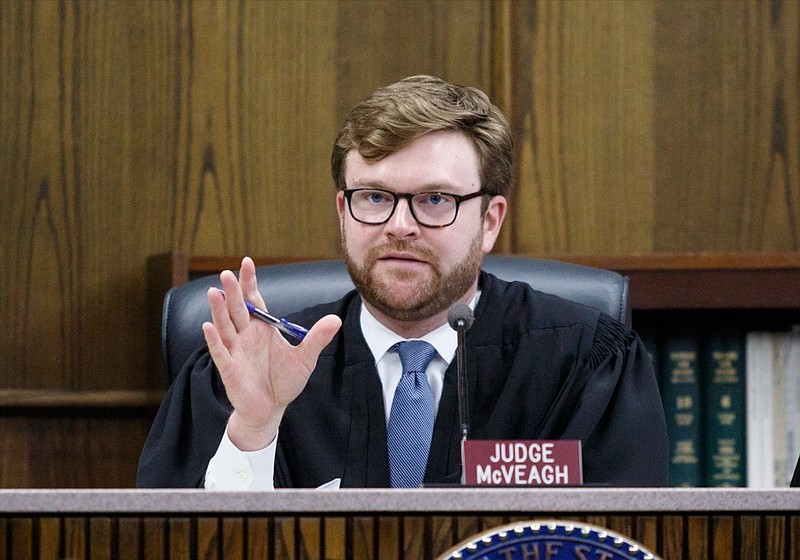COVID-19 has done more than force us to wear masks, keep us from hugging friends and close businesses. It's also put people in debt - often, debilitating, crushing medical debt.
Statistics show the country's already considerable medical debt grew during the coronavirus pandemic, much of it because of workers who lost their jobs and with them their employee-sponsored health insurance.
Medical debt among members of Credit Karma, a national finance company, grew by $2.8 billion, or about 6.5%, from the end of May 2020 to the end of March 2021. The number of people with past due medical debt grew by nearly 9%, from 19.6 million to 21.4 million.
Similarly, a survey published recently by LendingTree found that 60% of Americans polled faced some amount of medical debt, with 53% saying the amount was greater than $5,000 and 72% claiming it prevented them from things like buying a home or having a child.
Helping trigger that debt were the estimated 7.7 million workers who lost their employee-sponsored health insurance by June 2020, according to an October study conducted by the Commonwealth Fund, the Employee Benefit Research Institute and the W.E. Upton Institute. That loss, in turn, affected 6.9 million dependents.
However, the Hamilton County Sessions Court has just begun a first-in-the-state program that allows those with medical debt with Erlanger Health System the opportunity to negotiate a better outcome for themselves before lawyers and courtrooms become involved.
The free, voluntary and confidential program, called online dispute resolution (https://cii2.courtinnovations.com/TNMEDDEBT), allows eligible individuals - they must be at least 18 years old, have an active email address and access to the internet, and live, work or have a medical debt dispute arising in Hamilton County - to register on the medical debt site and send a message to Erlanger about their debt. An Erlanger representative then messages the party back, and the process moves forward.
The individual does not need a lawyer to participate, though Legal Aid of Tennessee - which helped write the language that guides the process - said it can be requested for support. A Rule 31-trained mediator, who does not take a specific side in the negotiations, also may be requested and can help work out a settlement in writing (though no one is forced to settle).
The idea is that the matter can be taken care of online, without lawyers and courtrooms, and in a manner that leaves the individual in more secure financial shape.
It is the type of innovative idea that many courts across the country should be exploring in various non-criminal matters before lawsuits, collection agencies and credit reports become involved.
"This is a program that is designed to give you and the health care provider an opportunity to discuss, negotiate and possibly agree on some deal to resolve a medical bill," Hamilton County General Sessions Judge Alex McVeagh said in a post on TnCourts.gov.
McVeagh said even before the virus that medical and other consumer debt was a problem in the county.
He said some 15,000 civil cases, many involving debt, were filed in the court in 2019. The court, he said, handles cases involving up $25,000, "the highest 'small claims' jurisdictional limit in the country."
Every civil docket over which he presided in 2020, McVeagh said Monday, typically had anywhere from one to 20 medical pay cases.
Tennessee, according to the Sycamore Institute, has the 10th highest rate of medical debt in the country, with 93 of 95 counties reporting higher medical debt than the national average and one in four state residents saying medical debt has affected their credit history.
Those numbers, McVeagh said in the post, were what convinced him at the 2019 National Conference of State Courts Innovation Summit in Louisville, Kentucky, that the county was a perfect spot for online dispute resolution. Other states use online dispute resolution, but they may use it for traffic cases, family disputes and other small claims, but not solely for medical debt.
The State Justice Institute awarded a $50,000 technical assistance grant in 2020 to help fund the pilot program with Erlanger, and the Tennessee Supreme Court Access to Justice Commission provided additional funding.
While McVeagh said Monday he'd like to see 30 to 50% of cases resolved through the process, "any dispute that is resolved, dismissed or settled" amicably would be a success.
However, the process shouldn't be seen as "just another tool for the hospital," he said. As important as it is to settle disputes, it's just as important to "make sure the debtor isn't railroaded."
If the online dispute resolution is as successful with Erlanger clients as McVeagh and other judicial officials hope it will be with the current funding, it may be expanded.
"My hope would be that other providers would come on board," he said. "But I'd love to get a good set of data before they scale it up."
McVeagh said the technology lends itself to use with other courts and disputes, and that other states and courts will be watching the local process.
"This is where our courts are going," he said.
